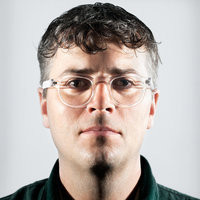Mat Honan is a senior writer at Wired.
"[The tech] industry—especially as it relates to a lot the silly apps and the silly websites and the silly shit that we put up with—is ridiculous. It's just such a hype fest, people living off of jargon and nonsense. There are entire conferences devoted to nonsense! ... I like to skewer that stuff, because I don't want to feel responsible for it. I don't want to feel like I'm making someone go out and buy some piece of shit they don't need."
Thanks to this week's sponsor, TinyLetter!
</blockquote>
